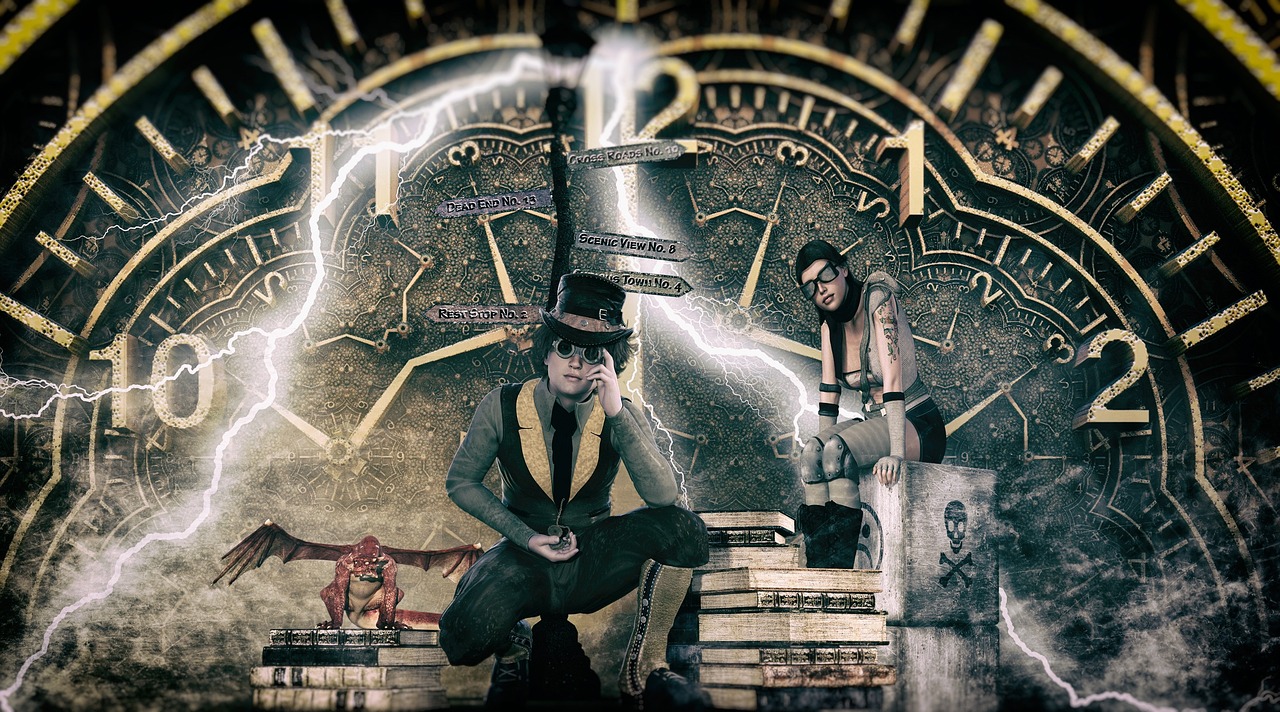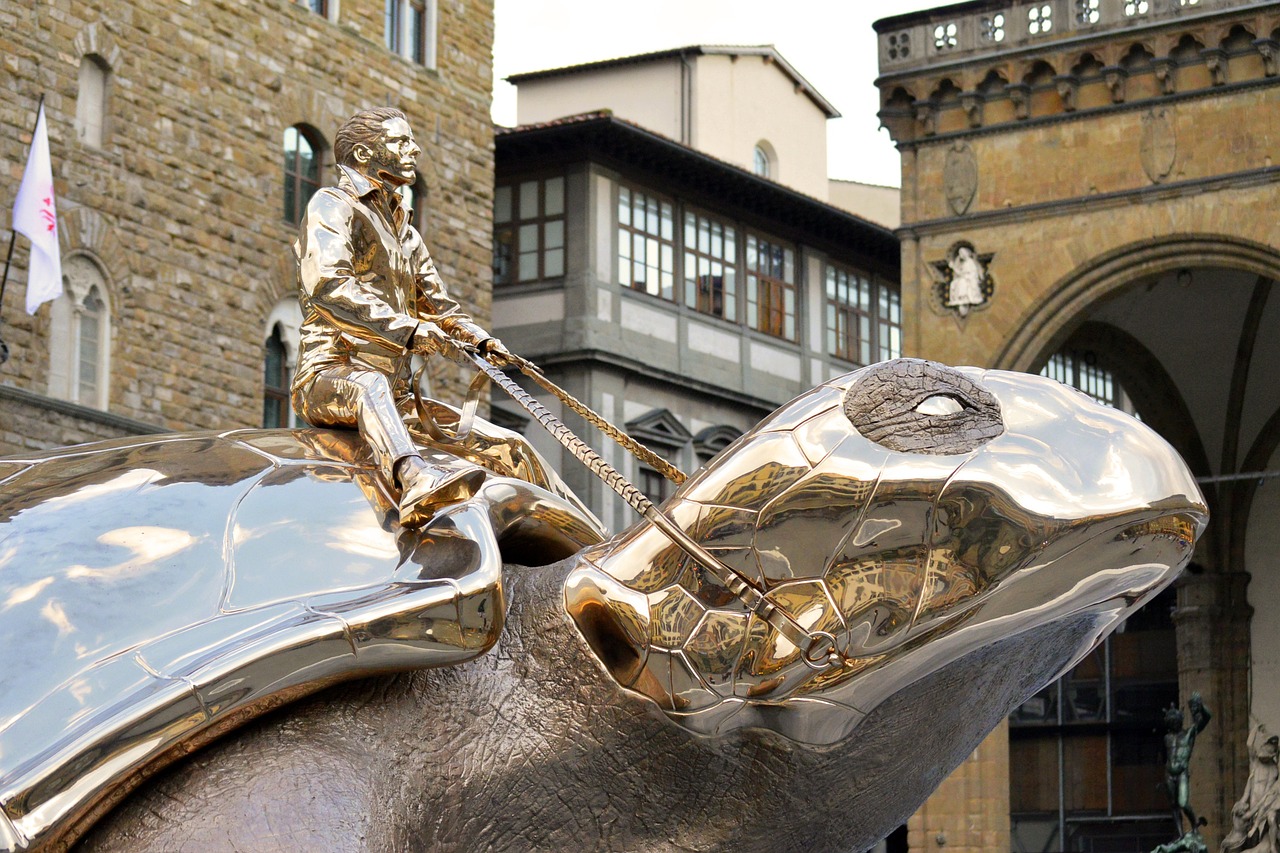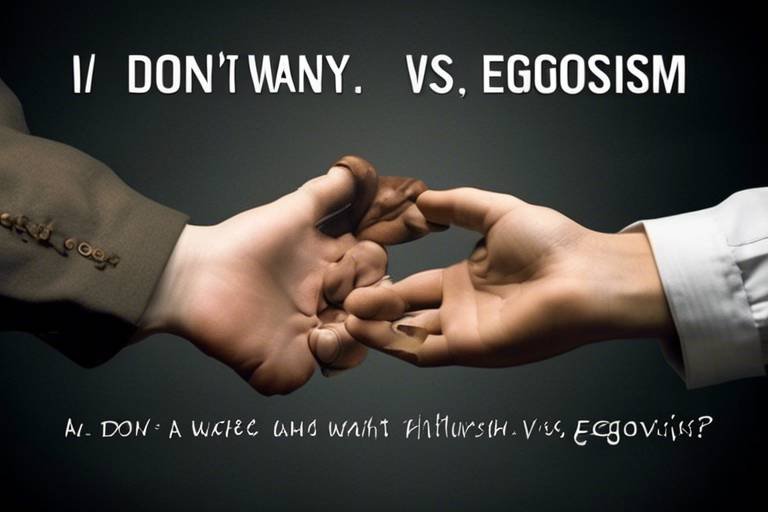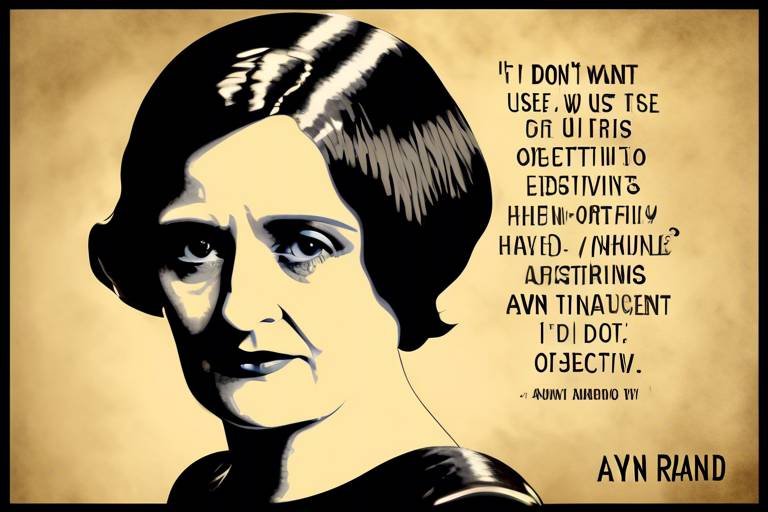Utopia - A Philosophical and Political Analysis
Utopia, a term that evokes images of an ideal society, has intrigued philosophers, politicians, and dreamers for centuries. But what does it truly mean? Is it merely a fanciful notion, or does it hold the potential for real-world applications? This article explores the concept of Utopia through various philosophical and political lenses, examining its implications, interpretations, and potential impact on society in both historical and contemporary contexts.
The roots of Utopian thought can be traced back to ancient civilizations, where philosophers pondered the ideal state of human existence. From Plato’s Republic to Thomas More’s Utopia, these foundational texts have shaped our understanding of what an ideal society could look like. The evolution of Utopian thought reflects humanity's quest for a better world, often influenced by the social, political, and economic conditions of their times. Key figures such as Aristotle, who emphasized the importance of virtue in governance, and Rousseau, who critiqued inequality, have contributed significantly to this discourse.
Utopian thought is not monolithic; it encompasses a variety of philosophical frameworks. Different thinkers conceptualize Utopia through lenses such as idealism, realism, and existentialism. For instance, idealists envision a society based on perfect principles, while realists focus on the practicalities of human nature and societal organization. Existentialists, on the other hand, may argue that the pursuit of Utopia is an inherent part of the human condition, reflecting our desire for meaning and purpose. Each perspective offers unique insights into the complexities of human nature and the structures we create.
In Plato’s vision of an ideal state, he presents a society governed by philosopher-kings—individuals who possess wisdom and virtue. Plato argues that justice is the cornerstone of a harmonious society, where each individual fulfills their role according to their abilities. His allegory of the cave illustrates how knowledge and enlightenment can lead to a just society, where the rulers are not only knowledgeable but also morally upright. This notion raises questions about the nature of governance: can true justice exist without the guidance of those who understand the greater good?
Justice, as defined in Plato's Utopia, is not merely about legalistic fairness; it embodies a deeper moral order. In contemporary society, however, the concept of justice is often contested. Plato’s ideal of justice emphasizes the importance of the common good over individual desires. This raises an intriguing question: can a society truly be just if it prioritizes individual freedoms over collective well-being? The implications of this philosophical inquiry challenge our understanding of justice today.
The role of philosopher-kings in Plato's Utopia is critical. These rulers, characterized by their wisdom and virtue, are seen as the ideal guardians of society. Plato argues that education is essential for these rulers, as it equips them with the knowledge necessary to make informed decisions for the benefit of all. This idea prompts us to consider: how can we ensure that our leaders possess the qualities needed to govern effectively? The emphasis on education in governance remains relevant as we navigate modern political landscapes.
Fast forward to the contemporary world, and Utopian theories have evolved in response to globalization, technological advancements, and pressing environmental concerns. Modern thinkers reinterpret Utopia, envisioning societies that prioritize sustainability, equity, and innovation. For example, the rise of eco-Utopianism reflects a growing awareness of environmental issues, advocating for a harmonious relationship between humanity and nature. This shift in perspective raises a pivotal question: can we create a Utopia that addresses both human needs and ecological sustainability?
The relationship between Utopian ideals and political systems is a complex interplay. Different political ideologies, such as socialism and capitalism, envision Utopian societies through their unique lenses. Socialism often seeks to create equitable societies through communal living and shared resources, while capitalism emphasizes innovation and progress, albeit with inherent inequalities. Understanding these perspectives helps us navigate the challenges of achieving Utopian aspirations in a world marked by diverse ideologies.
Utopian socialism, championed by figures like Charles Fourier and Robert Owen, envisions a society where resources are shared equitably among all members. These thinkers proposed communal living arrangements, emphasizing cooperation over competition. Their visions challenge us to rethink the structures of our societies: can we truly achieve a Utopia without addressing the systemic inequalities that persist today?
While capitalism is often associated with individualism and competition, it also harbors Utopian aspirations. The drive for progress and innovation can lead to advancements that improve quality of life. However, this pursuit often grapples with ethical dilemmas and inequalities. The challenge lies in reconciling the Utopian ideals of progress with the reality of societal disparities. Can a capitalist society ever truly achieve Utopia, or is it perpetually at odds with its own ideals?
Despite the allure of Utopian ideals, critiques abound. Detractors argue that the pursuit of a perfect society can lead to authoritarianism, as seen in historical attempts to create Utopias. The lessons learned from these endeavors highlight the dangers of imposing a singular vision of Utopia, often at the expense of individual freedoms. Moreover, the impracticality of achieving a flawless society raises questions about the very nature of Utopian aspirations. Are we, as a society, doomed to chase an illusion?
- What is the definition of Utopia? Utopia refers to an imagined perfect society where social, legal, and political systems function harmoniously.
- Who are some key figures in Utopian thought? Notable figures include Plato, Thomas More, Charles Fourier, and Robert Owen, each contributing unique perspectives on ideal societies.
- Can Utopia be achieved in modern society? While Utopian ideals inspire many, achieving a perfect society remains complex due to diverse human needs and systemic challenges.
- What are the dangers of pursuing Utopian ideals? Pursuing a perfect society can lead to authoritarianism and the suppression of individual freedoms, as seen in historical attempts at Utopianism.

The Origins of Utopian Thought
The concept of Utopia has fascinated thinkers and dreamers alike for centuries, serving as a canvas for our deepest aspirations and critiques of society. It’s like looking into a mirror that reflects both our hopes for a better world and our fears of what might go wrong. The term itself was coined by Sir Thomas More in his 1516 work, "Utopia," where he depicted an imaginary island society that functioned on principles of communal ownership and equality. But where did these ideas originate? To understand the roots of Utopian thought, we must journey back through history, exploring ancient philosophies and key figures who have shaped this enduring concept.
Utopian ideas can be traced back to ancient civilizations, where philosophers like Plato envisioned ideal societies that promoted justice and virtue. In his seminal work, "The Republic," Plato outlined a society governed by philosopher-kings who possessed the wisdom and knowledge to rule justly. This notion of a perfect society was not merely theoretical; it was a response to the chaotic political landscape of his time. Plato’s ideas laid the groundwork for future thinkers to explore the relationship between governance, morality, and the ideal state.
As we move through history, we encounter other influential figures who contributed to Utopian thought. For instance, the Renaissance brought forth a renewed interest in humanism and the potential for societal improvement. Thinkers like Francis Bacon and Tommaso Campanella expanded on these ideas, advocating for scientific progress and social reform. Bacon’s "New Atlantis" imagined a society where knowledge and discovery were paramount, reflecting a growing belief in the power of human innovation to create a better world.
Fast forward to the 19th century, and we find a surge of Utopian socialist movements. Figures such as Charles Fourier and Robert Owen proposed radical ideas about communal living and shared resources, challenging the prevailing capitalist norms of their time. Fourier’s vision of "phalanges," or self-sustaining communities, and Owen’s experiments in cooperative societies were attempts to create equitable environments where individuals could thrive together. These movements were not merely theoretical; they attempted to put Utopian ideas into practice, albeit with mixed results.
In contemporary discourse, Utopian thought has evolved to address modern challenges such as globalization, technology, and environmental issues. Today's Utopian thinkers grapple with the realities of a rapidly changing world, seeking to redefine what an ideal society might look like in the 21st century. The interplay between ancient philosophies and modern interpretations creates a rich tapestry of ideas that continue to inspire debates about justice, equality, and the human condition.
In summary, the origins of Utopian thought are deeply rooted in our collective history, influenced by a myriad of philosophers and social reformers. From the ideal states envisioned by Plato to the communal societies proposed by 19th-century socialists, these concepts challenge us to consider what it means to live in a just and equitable world. As we reflect on the past, we are reminded that the pursuit of Utopia is not just a dream but a critical examination of our values and aspirations.
- What does Utopia mean? Utopia refers to an imagined perfect society where social, political, and economic conditions are ideal.
- Who first coined the term Utopia? The term was first coined by Sir Thomas More in his book "Utopia," published in 1516.
- How have Utopian ideas evolved over time? Utopian ideas have evolved from ancient philosophies to modern interpretations that address contemporary issues like technology and environmental concerns.
- What is the significance of Utopian socialism? Utopian socialism emphasizes creating equitable societies through communal living and shared resources, challenging capitalist norms.

Philosophical Perspectives on Utopia
The concept of Utopia has always sparked the imagination of philosophers, politicians, and dreamers alike. It serves as a canvas on which we paint our hopes and aspirations for an ideal society. Various philosophical frameworks offer distinct interpretations of Utopia, each shedding light on human nature and societal organization. From idealism to realism and existentialism, these perspectives help us understand not just what Utopia is, but what it reveals about our values and beliefs.
At its core, idealism posits that Utopia is not merely a distant fantasy but an attainable reality that can be realized through the pursuit of moral perfection and social justice. Thinkers like Plato envisioned a world where philosophers govern, promoting the idea that knowledge and virtue are essential for a just society. In this light, Utopia becomes a reflection of our highest ideals, challenging us to strive for a better world.
Conversely, realism takes a more pragmatic approach. Realists argue that Utopian visions often ignore the complexities of human nature and societal dynamics. They contend that while striving for a perfect society is noble, it can lead to disillusionment and failure. The realist perspective reminds us that human beings are flawed, driven by self-interest and conflicting desires. Therefore, any attempt to create a Utopia must account for these inherent imperfections.
Then we have existentialism, which adds another layer to our understanding of Utopia. Existentialists like Jean-Paul Sartre emphasize individual freedom and the subjective nature of existence. From this viewpoint, Utopia is not a one-size-fits-all solution but rather a personal journey toward meaning and fulfillment. Each individual's quest for their version of Utopia highlights the importance of choice, authenticity, and the responsibility that comes with it.
To illustrate these philosophical perspectives, consider the following table that summarizes key ideas:
| Philosophical Perspective | Key Ideas |
|---|---|
| Idealism | Utopia as a moral and just society governed by knowledge and virtue. |
| Realism | Utopia as an impractical dream that must contend with human flaws. |
| Existentialism | Utopia as a personal journey toward meaning, emphasizing individual freedom. |
These philosophical frameworks not only enrich our understanding of Utopia but also challenge us to reflect on our own beliefs and aspirations. Are we more inclined to pursue an idealistic vision, or do we recognize the limitations of human nature? Perhaps we find ourselves navigating the space between these perspectives, seeking a balance that acknowledges both our dreams and our realities.
In conclusion, the philosophical perspectives on Utopia serve as a mirror reflecting our deepest values, fears, and hopes. They invite us to engage in critical discussions about what an ideal society might look like and, more importantly, how we can strive toward it without losing sight of the complexities of human existence. As we ponder these ideas, we must ask ourselves: What does Utopia mean to us, and how can we contribute to its realization in our own lives?
- What is the main idea behind Utopian thought?
Utopian thought revolves around the idea of creating an ideal society that embodies perfection in social, political, and moral aspects. - How do different philosophers view Utopia?
Philosophers have various interpretations of Utopia, including idealism, realism, and existentialism, each offering unique insights into human nature and societal organization. - Can Utopia ever be achieved?
While some believe Utopia is an attainable goal, others argue that the complexities of human nature make it an impractical dream.

Plato's Republic and the Ideal State
In the grand tapestry of philosophical thought, few works shine as brightly as Plato's Republic. Written in the 4th century BCE, this seminal text presents a vision of an ideal state that has captivated thinkers for centuries. Plato, through the character of Socrates, explores the nature of justice, the role of the individual within society, and the responsibilities of rulers. But what does this ideal state really look like, and how does it function?
At the heart of Plato's vision lies the idea that a just society must be structured in a way that promotes the common good. He proposes a tripartite class system, consisting of the rulers (philosopher-kings), the warriors, and the producers. Each class has its own distinct role and responsibilities, contributing to the harmony of the state. The rulers, endowed with wisdom and knowledge, are tasked with making decisions that benefit all, while the warriors defend the state, and the producers provide for its material needs.
Plato argues that true justice emerges when each class performs its designated role without overstepping its boundaries. This concept of justice is not merely about legal fairness; it extends to the idea of moral virtue and the pursuit of the common good. In essence, justice in Plato's Utopia is about creating a society where everyone plays their part effectively, ensuring that the state functions smoothly.
But what about the rulers? Plato introduces the notion of philosopher-kings—individuals who possess both the intellectual capacity and the moral integrity to govern wisely. These rulers are not just educated; they are deeply committed to the pursuit of truth and justice. Plato famously asserts that "until philosophers are kings, or kings and princes of this world have the spirit and power of philosophy, and political greatness and wisdom meet in one, and those converse and unite in the same place, cities will never cease from ill." This highlights his belief that only those who truly understand the essence of justice should wield political power.
In Plato's ideal state, education plays a pivotal role. The philosopher-kings undergo rigorous training, focusing on subjects such as mathematics, dialectics, and philosophy itself. This education is not merely academic; it is a transformative journey that shapes individuals into wise and just leaders. As they ascend through the stages of learning, they develop a deeper understanding of the Forms, particularly the Form of the Good, which is the ultimate goal of their philosophical pursuits.
However, the question remains: can such an ideal state ever exist in reality? Critics argue that Plato's vision is impractical, as it relies on the assumption that individuals will always act in the best interest of the society. Moreover, the concentration of power in the hands of a few philosopher-kings raises concerns about potential authoritarianism. History has shown us that the quest for a perfect society often leads to disastrous outcomes when ideals are imposed without consideration for human nature and societal complexities.
Despite these criticisms, the influence of Plato's Republic endures. It serves as a foundational text for discussions on governance, justice, and the role of the individual in society. By examining the complexities of human nature and the challenges of political organization, Plato invites us to ponder the age-old question: what does it truly mean to create a just society?
- What is the main idea of Plato's Republic?
Plato's Republic explores the nature of justice and outlines an ideal state governed by philosopher-kings who prioritize the common good. - What are the three classes in Plato's ideal state?
The three classes are rulers (philosopher-kings), warriors, and producers, each with distinct roles and responsibilities. - Why are philosopher-kings important?
Philosopher-kings possess the wisdom and moral integrity necessary to govern justly and effectively, ensuring the well-being of society. - What are the criticisms of Plato's Utopia?
Critics argue that Plato's vision is impractical and may lead to authoritarianism, as it concentrates power in the hands of a few.

Justice in Utopia
When we delve into the concept of justice in Plato's Utopia, we encounter a fascinating interplay between morality, governance, and societal structure. Plato envisioned a society where justice was not merely an abstract idea but a fundamental principle that governed every aspect of life. In his ideal state, justice is defined as each individual fulfilling their appropriate role within the community. This notion of justice is deeply rooted in the idea of harmony, where every class contributes to the common good, creating a balanced and cohesive society.
In Plato's framework, justice is not simply about adhering to laws or regulations; it is about achieving a higher moral order. He argues that true justice arises when individuals act according to their nature and abilities. For instance, the Guardians, who are the philosopher-kings, possess the wisdom to rule justly, while the Auxiliaries protect the state, and the Producers provide for the material needs of society. This division of labor ensures that everyone plays a vital role, contributing to the overall well-being of the Utopia.
However, the concept of justice in Utopia raises important questions about individual rights and freedom. Can a society that prioritizes the common good over individual desires truly be just? Plato's Utopia suggests that personal freedoms may need to be curtailed for the sake of societal harmony. This idea can be quite controversial, especially when we consider contemporary understandings of justice, which emphasize the importance of personal liberty and equality.
To further illustrate the complexities of justice in Utopia, consider the following comparisons:
| Aspect | Plato's Utopia | Contemporary Understanding |
|---|---|---|
| Definition of Justice | Harmony through role fulfillment | Equality and individual rights |
| Role of Individuals | Defined by nature | Self-determined |
| Government Structure | Philosopher-kings | Democratic principles |
This table highlights the stark differences between Plato's vision and modern interpretations of justice. While Plato's Utopia seeks to establish a perfect society through a rigid structure, contemporary views advocate for flexibility and personal freedoms. This contrast raises a pivotal question: Can a society truly be just if it sacrifices individual rights for the sake of collective harmony?
Ultimately, the exploration of justice in Utopia serves as a mirror reflecting our own societal values and challenges. As we ponder the implications of Plato's ideas, we are reminded that the quest for justice is not merely an academic exercise; it is a living, breathing dialogue that continues to shape our world today. In a way, the pursuit of justice in Utopia invites us to envision a society where fairness and morality are at the forefront of governance, urging us to question our own systems and strive for a more equitable future.
- What is the main idea of justice in Plato's Utopia?
Justice in Plato's Utopia is defined as everyone fulfilling their natural roles, contributing to societal harmony. - How does Plato's view of justice differ from modern perspectives?
Plato emphasizes collective good over individual rights, while modern perspectives often prioritize personal freedoms and equality. - What role do philosopher-kings play in Utopia?
Philosopher-kings are the ideal rulers, possessing wisdom and virtue to govern justly and maintain harmony within society.

Philosopher-Kings: Rulers of Utopia
In Plato's vision of an ideal society, the concept of the philosopher-king emerges as a central pillar of governance. Imagine a ruler who is not only wise but also deeply virtuous, someone who understands the essence of justice and the complexities of human nature. This is the essence of the philosopher-king, a figure who transcends the typical political leader by embodying knowledge and ethical integrity. Plato argued that only those who truly comprehend the Forms—the abstract ideals of justice, beauty, and goodness—are fit to rule. This notion raises a significant question: Can wisdom alone guide a society towards true harmony?
Plato believed that the philosopher-king should be a product of rigorous education and training, which prepares them for the complexities of leadership. This education is not merely academic; it is a holistic development of the soul. In his work, he describes a rigorous curriculum that includes mathematics, dialectics, and physical training, all aimed at cultivating a ruler's ability to discern the greater good. The philosopher-king's wisdom allows them to make decisions that are not just beneficial in the short term but are also sustainable for future generations. This raises an interesting analogy: just as a skilled gardener understands the needs of each plant to create a thriving garden, a philosopher-king understands the needs of society to foster a flourishing state.
However, the idea of philosopher-kings is not without its challenges. Critics often argue that placing so much power in the hands of a single individual or a small group can lead to authoritarianism. What happens when a ruler's vision of the good life diverges from the desires of the populace? Plato's idealism assumes that all philosopher-kings will act in the best interest of their citizens, but history has shown us that power can corrupt even the most virtuous leaders. This brings us to a crucial point: the importance of checks and balances in any political system, even one led by philosopher-kings.
To explore this further, let's consider some characteristics that define philosopher-kings:
- Wisdom: Their decisions are based on knowledge and understanding rather than personal gain.
- Virtue: They possess moral integrity, ensuring that their actions benefit the community.
- Education: A comprehensive and philosophical education shapes their ability to govern wisely.
- Empathy: They understand the needs and desires of their citizens, creating policies that reflect those needs.
In essence, the philosopher-king is an ideal that challenges us to rethink leadership. It asks us to consider whether those in power should merely be politicians or whether they should also be thinkers and visionaries. While Plato's concept may seem utopian, it serves as a valuable framework for examining our current political systems. Are our leaders equipped with the philosophical tools necessary to guide society towards a common good? Or are they merely responding to the immediate demands of the electorate?
Ultimately, the philosopher-king represents a hopeful vision of governance, one where leadership is rooted in wisdom and virtue. However, it also serves as a cautionary tale, reminding us that the pursuit of an ideal society must be approached with humility and an understanding of human nature's complexities. As we navigate the challenges of the modern world, the lessons from Plato's philosopher-kings remain relevant, urging us to seek leaders who aspire not just to govern but to enlighten.
1. What is a philosopher-king?
A philosopher-king is a ruler who possesses both wisdom and virtue, ideally suited to govern society based on philosophical principles.
2. Why does Plato advocate for philosopher-kings?
Plato believes that only those who understand the true essence of justice and goodness can make decisions that lead to a harmonious society.
3. Can philosopher-kings lead to authoritarianism?
Yes, critics argue that concentrating power in the hands of a few can lead to authoritarian rule, highlighting the need for checks and balances.
4. How does education play a role in the philosopher-king concept?
Education is crucial as it shapes the philosopher-king's ability to understand complex societal issues and govern wisely.
5. Are there modern examples of philosopher-kings?
While the concept is largely theoretical, some contemporary leaders exhibit traits of philosopher-kings, prioritizing wisdom and ethical governance.

Modern Utopian Theories
In our fast-paced world, the notion of Utopia has evolved significantly, adapting to the contemporary challenges we face. Modern Utopian theories have emerged not just as a nostalgic dream of a perfect society, but as a practical response to the complexities of globalization, technological advancements, and environmental crises. Thinkers today are redefining what Utopia means in light of these pressing issues, pushing us to reconsider our aspirations for an ideal society.
One of the most significant shifts in modern Utopian thought is the recognition that a single, static vision of Utopia may no longer be feasible. Instead, contemporary theorists advocate for a pluralistic approach, where multiple Utopian visions coexist, reflecting the diverse needs and values of different communities. This perspective acknowledges that what constitutes a perfect society can vary dramatically from one group to another, shaped by cultural, social, and economic contexts.
Furthermore, the integration of technology into our daily lives has sparked new Utopian ideas. The rise of digital platforms and social media has led to discussions about virtual Utopias, where communities can connect and collaborate across geographical boundaries. These digital spaces offer opportunities for innovative solutions to societal problems, such as climate change and inequality, fostering a sense of global citizenship. However, they also raise questions about privacy, surveillance, and the potential for digital divides, reminding us that the path to a Utopian future is fraught with challenges.
Another critical aspect of modern Utopian theories is the increased focus on sustainability. As environmental degradation becomes an urgent issue, many contemporary thinkers emphasize the need for eco-Utopias, where harmony between humanity and nature is prioritized. These visions advocate for renewable energy, circular economies, and sustainable living practices that not only aim for a better quality of life but also ensure the health of our planet for future generations. This shift towards sustainability reflects a growing awareness of our interconnectedness and the responsibility we hold towards the Earth.
Moreover, the concept of Utopia today is often intertwined with social justice movements. Many modern Utopian theorists argue that an ideal society must address systemic inequalities and promote inclusivity. This perspective is evident in the work of activists and scholars who advocate for intersectional Utopianism, which seeks to dismantle oppressive structures and create spaces where all voices are heard and valued. In this light, Utopia becomes less about a distant ideal and more about the ongoing struggle for equity and justice in our current realities.
In summary, modern Utopian theories reflect a dynamic interplay of ideas that respond to the complexities of our world. They challenge us to think critically about our aspirations and to envision societies that are not only ideal but also attainable and sustainable. As we navigate the challenges of the 21st century, these theories encourage us to dream big while remaining grounded in the realities of our diverse experiences.
- What are modern Utopian theories? Modern Utopian theories are contemporary interpretations of the concept of Utopia that address current social, political, and environmental challenges, advocating for pluralistic, sustainable, and inclusive societies.
- How do technology and Utopia intersect? Technology plays a crucial role in shaping modern Utopian theories, leading to discussions about virtual Utopias and the potential for digital spaces to foster community and innovation.
- What is eco-Utopianism? Eco-Utopianism emphasizes the importance of sustainability and environmental stewardship in creating ideal societies, advocating for practices that promote harmony between humanity and nature.
- How does social justice relate to Utopian thought? Modern Utopian theories often incorporate social justice principles, focusing on dismantling inequalities and creating inclusive spaces where all individuals can thrive.

Utopia and Political Systems
When we think about Utopia, it’s impossible to ignore the intricate dance between Utopian ideals and political systems. The concept of an ideal society often reflects the aspirations, values, and challenges of the political frameworks that govern human interaction. Throughout history, various political ideologies have attempted to manifest Utopian dreams, each interpreting the idea of a perfect society in unique ways. For instance, socialism envisions a community where resources are shared equitably, while capitalism often emphasizes individual achievement and innovation as pathways to progress.
At the heart of this exploration lies the question: Can Utopia ever be realized within existing political structures? This question is not merely academic; it strikes at the core of how we understand governance and societal organization. In many ways, the pursuit of Utopia reveals the tensions between idealism and pragmatism. Political systems, by their nature, are designed to manage human behavior, conflicts, and resources. However, when Utopian ideals are inserted into these systems, they can lead to both inspiration and disillusionment.
One of the most compelling intersections of Utopian thought and political systems can be seen in the framework of Utopian socialism. Thinkers like Charles Fourier and Robert Owen sought to create societies built on cooperation and communal living. They believed that by restructuring societal norms and economic practices, it was possible to achieve a more equitable world. Fourier, for example, envisioned a society where people would work in harmony, driven by passion rather than profit. His ideas were radical for their time and laid the groundwork for later socialist movements.
In contrast, the capitalist perspective on Utopia often revolves around the idea of progress through individualism and competition. Capitalist societies, while they promote innovation and economic growth, often grapple with significant inequalities. The Utopian aspiration here is to create a society where everyone has the opportunity to succeed, but the reality frequently falls short. The challenge lies in balancing the drive for personal success with the need for social responsibility. This dichotomy raises critical questions: Is it possible to achieve Utopia within a capitalist framework? Can the pursuit of personal wealth coexist with the ideals of equity and justice?
Moreover, the relationship between Utopian ideals and political systems often leads to unintended consequences. For example, attempts to create Utopian societies have sometimes resulted in authoritarian regimes that suppress individual freedoms in the name of the greater good. This paradox highlights a crucial lesson: the road to Utopia is fraught with challenges, and the desire for a perfect society can lead to oppressive measures. History is replete with examples of well-intentioned movements that spiraled into dystopian realities, reminding us that the pursuit of Utopia must be approached with caution and humility.
In summary, the exploration of Utopia within the context of political systems reveals a complex interplay of ideals and realities. While the visions of a perfect society can inspire and motivate, they also carry the potential for significant pitfalls. As we navigate our contemporary world, it’s essential to critically examine how our political ideologies shape our Utopian aspirations and to remain vigilant against the dangers that may arise in the pursuit of an ideal society.
- What is Utopian socialism? Utopian socialism is a political ideology that advocates for the establishment of a society based on communal living and shared resources, aiming to create equality and social justice.
- Can capitalism lead to a Utopian society? While capitalism promotes individual achievement and innovation, it often struggles with inequalities, making the realization of a Utopian society challenging within its framework.
- What are the dangers of pursuing Utopia? The pursuit of Utopia can lead to authoritarianism and oppression, as seen in historical attempts to create ideal societies that disregarded individual freedoms.

Utopian Socialism
Utopian socialism is a fascinating and complex ideology that emerged during the 19th century, reflecting a profound desire for social reform and equality. Unlike traditional socialism, which often focuses on class struggle and the means of production, Utopian socialism envisions a harmonious society where individuals live in peace and cooperation. Thinkers like Charles Fourier and Robert Owen were pivotal in shaping this movement, advocating for communal living and the equitable distribution of resources.
Fourier, for instance, imagined a world where people would live in phalansteries—self-sustaining communities that fostered cooperation and eliminated competition. His vision was not just about economic change; it was about creating a new social order that would allow individuals to pursue their passions and interests without the constraints of traditional societal expectations. Fourier believed that by aligning people's work with their desires, society could achieve a level of happiness previously thought unattainable.
Similarly, Robert Owen, a Welsh social reformer, put his ideas into practice by establishing communities that emphasized education, fair wages, and improved working conditions. Owen's experiments at New Lanark and later in the United States aimed to demonstrate that a better society was possible through cooperation and shared resources. His belief in the power of education and the moral responsibility of employers laid the groundwork for many modern labor rights movements.
Despite their noble intentions, Utopian socialists faced significant challenges. Their idealistic visions often clashed with the harsh realities of human nature and societal structures. Critics argue that Utopian socialism is overly optimistic, suggesting that it fails to account for the complexities of human behavior, such as greed and competition. Moreover, the practical implementation of these ideas often led to disillusionment, as seen in various historical attempts to create Utopian communities.
However, the legacy of Utopian socialism is undeniable. It has inspired countless movements and continues to resonate in contemporary discussions about social justice and equality. In a world increasingly defined by economic disparity and social unrest, Utopian socialism reminds us of the possibility of a more equitable and just society. It challenges us to envision what could be possible if we dared to dream of a better world.
In conclusion, while Utopian socialism may not offer a foolproof blueprint for societal organization, it serves as an important reminder of the human capacity for creativity and compassion. By exploring these ideas, we can better understand the ongoing struggle for a fairer society and the role of idealism in shaping our collective future.
- What is Utopian socialism? Utopian socialism is a social and political ideology that envisions a society based on cooperation, communal living, and equitable resource distribution, as opposed to class struggle.
- Who were the key figures in Utopian socialism? Notable figures include Charles Fourier, who proposed phalansteries, and Robert Owen, who established communities focused on education and fair labor practices.
- What are the criticisms of Utopian socialism? Critics argue that Utopian socialism is overly idealistic and fails to consider the complexities of human nature, such as competition and greed.
- How does Utopian socialism relate to modern social movements? Utopian socialism has influenced contemporary discussions about social justice and equality, inspiring movements that seek to address economic disparities.

Capitalism and Utopian Aspirations
When we think about capitalism, the image that often springs to mind is one of bustling markets, innovation, and the relentless pursuit of profit. But what if we told you that beneath this vibrant surface lies a complex relationship with the notion of Utopia? In essence, capitalism carries within it a flicker of Utopian aspirations, a dream of a society where everyone can thrive through hard work and ingenuity. However, this dream is often clouded by the shadows of inequality and exploitation.
At its core, capitalism is driven by the idea that if individuals are free to pursue their interests, society as a whole will benefit. This concept is akin to a garden where each flower competes for sunlight, ultimately creating a lush, diverse ecosystem. Yet, just like in any garden, some plants may overshadow others, leading to imbalances that can stifle growth and opportunity. In this light, the Utopian vision of equality and shared prosperity can seem like a distant dream, often overshadowed by the stark realities of wealth concentration.
In a capitalist society, the aspiration for Utopia manifests itself through various avenues:
- Innovation and Progress: The drive for technological advancements often holds the promise of improving living standards for all. Think about how the internet has revolutionized communication and access to information. In an ideal world, these innovations would be available to everyone, bridging the gap between the rich and the poor.
- Consumer Choice: Capitalism champions the idea that consumers can choose products that best suit their needs. This variety can lead to a more personalized and fulfilling life, a cornerstone of Utopian ideals.
- Wealth Creation: The potential for wealth generation in a capitalist system can, theoretically, provide the resources necessary to address societal issues such as poverty and education, moving closer to that Utopian vision.
However, as we delve deeper, we must confront the uncomfortable truths that challenge these aspirations. The very structure of capitalism can lead to significant inequalities that perpetuate cycles of poverty and disenfranchisement. The rich get richer while the poor often remain trapped in a system that seems to favor the privileged few. This disparity raises questions about the feasibility of achieving a Utopian society within a capitalist framework.
Moreover, capitalism's relentless focus on profit can lead to ethical dilemmas. For instance, businesses may prioritize their bottom line over environmental sustainability, creating a world where nature is sacrificed for short-term gains. This contradiction poses a significant challenge to the Utopian ideal of a harmonious existence between humanity and the planet. The question arises: can a society that thrives on competition and profit ever truly achieve a Utopian state?
To navigate these complexities, some modern thinkers advocate for a hybrid approach, merging the strengths of capitalism with the principles of social equity. By embracing concepts like social entrepreneurship and corporate social responsibility, businesses can contribute positively to society while still pursuing profit. This approach could pave the way for a new kind of Utopia, where economic success and social good are not mutually exclusive.
In conclusion, while capitalism holds the potential for Utopian aspirations, it also presents significant challenges that must be addressed. The dream of a perfect society is tantalizing, yet achieving it requires a critical examination of our current systems and a willingness to innovate beyond traditional boundaries. Can we find a way to harmonize the competitive spirit of capitalism with the ideals of equality and sustainability? Only time will tell.
- What is the relationship between capitalism and Utopian ideals? Capitalism embodies the aspiration for individual freedom and innovation, but it also creates inequalities that challenge the realization of Utopia.
- Can capitalism lead to a Utopian society? While capitalism has the potential to foster progress and wealth, its inherent inequalities and focus on profit can impede the achievement of a truly equitable society.
- What are some modern approaches to reconcile capitalism with Utopian aspirations? Concepts like social entrepreneurship and corporate social responsibility aim to balance profit-making with social good, potentially leading to a more Utopian future.

The Critique of Utopianism
Utopianism, while a captivating concept that inspires visions of a perfect society, is not without its critics. Many thinkers argue that the pursuit of Utopia can lead to unintended consequences, often resulting in authoritarian regimes or societal disillusionment. The notion of a flawless society can be so alluring that it blinds us to the complexities of human nature and the realities of political governance. As we delve deeper into the critiques of Utopianism, it's essential to understand the underlying arguments that challenge the feasibility of such ideals.
One of the primary critiques of Utopianism is its potential to foster authoritarianism. Historical instances, such as the Soviet Union and Maoist China, illustrate how the quest for a perfect society can lead to oppressive regimes. Leaders, often convinced of their vision's righteousness, may impose strict controls on individual freedoms in the name of achieving the greater good. This raises a crucial question: can a society that prioritizes collective ideals over individual rights truly be considered Utopian? Critics argue that the very essence of Utopia becomes compromised when it demands conformity at the expense of personal liberties.
Furthermore, the impracticality of achieving a perfect society is another significant point of contention. Utopian thinkers often overlook the complexities and contradictions inherent in human behavior. People are not universally altruistic; they possess a range of motivations and desires that can conflict with the ideals of a Utopian society. For instance, the ideal of communal living, as proposed by some Utopian socialists, may clash with the innate human tendencies toward competition and self-interest. This contradiction leads to a fundamental question: can a society truly function harmoniously when its members are driven by conflicting desires?
Another aspect of the critique centers around the historical attempts at creating Utopias. Many of these experiments have ended in failure, often leaving behind a legacy of suffering and disillusionment. For example, the Oneida Community in the 19th century aimed to create a perfect society based on shared property and complex marriage. While it thrived for a time, it ultimately disbanded due to internal conflicts and external pressures. Such examples serve as cautionary tales, illustrating that the road to Utopia is fraught with challenges that can lead to its downfall.
To further illustrate the critiques of Utopianism, consider the following table summarizing key criticisms:
| Critique | Description |
|---|---|
| Authoritarianism | The pursuit of Utopia can lead to oppressive regimes that prioritize collective ideals over individual freedoms. |
| Impracticality | Human behavior is complex and often contradicts the ideals of a Utopian society. |
| Historical Failures | Many attempts at creating Utopias have ended in disillusionment and suffering. |
In light of these critiques, one might wonder if the pursuit of Utopia is ultimately a fool's errand. While the vision of a perfect society can inspire hope and motivate change, it also carries the risk of disillusionment and authoritarianism. As we reflect on the critiques of Utopianism, it becomes clear that any attempt to create a better society must account for the complexities of human nature and the potential pitfalls of idealism.
- What is Utopianism? Utopianism refers to the belief in or pursuit of a perfect society, often characterized by ideal social, political, and economic conditions.
- Why is Utopianism criticized? Critics argue that Utopianism can lead to authoritarianism, is often impractical, and has resulted in historical failures that highlight the challenges of achieving a perfect society.
- Are there any successful examples of Utopian societies? While there have been attempts to create Utopian societies, many have faced significant challenges and ultimately failed, leading to questions about the feasibility of such ideals.
Frequently Asked Questions
- What is the concept of Utopia?
Utopia refers to an imagined perfect society where everything is ideal, from governance to social relations. It's a place where people live in harmony, free from conflict and suffering. Think of it as the ultimate dreamland where all your wishes come true!
- Who are the key figures associated with Utopian thought?
Some of the most notable figures include Plato, who famously described his vision of an ideal state in "The Republic." Other influential thinkers are Thomas More, whose book "Utopia" coined the term, and modern theorists like Karl Marx, who explored Utopian socialism.
- How does Plato's vision of Utopia differ from modern interpretations?
Plato's Utopia centers around the idea of philosopher-kings ruling wisely and justly, whereas modern interpretations often consider a variety of social, economic, and environmental factors. Today, Utopia might involve technology and sustainability, reflecting our current challenges and aspirations.
- What are the main critiques of Utopianism?
Critics argue that Utopian ideals can lead to authoritarianism, as the pursuit of a perfect society may justify oppressive measures. Moreover, the impracticality of achieving such a vision often results in disillusionment, as history shows many attempts at creating Utopias have failed.
- Can Utopian ideals be applied in today's society?
Absolutely! While a perfect society may be unattainable, Utopian ideals can inspire real change. They encourage us to strive for better governance, social equity, and environmental sustainability. It's about setting high goals and working towards them, even if perfection remains out of reach.
- What role does justice play in Utopian thought?
Justice is a cornerstone of Utopian philosophy, especially in Plato's work. It involves creating a society where fairness prevails, and individuals fulfill their roles harmoniously. In contemporary discussions, justice also encompasses social equity and human rights, reflecting broader definitions of what it means to live justly.
- How do different political systems envision Utopian societies?
Political systems like socialism and capitalism have their own Utopian visions. Utopian socialism emphasizes communal living and shared resources, while capitalism often focuses on innovation and progress. Each system faces unique challenges in realizing these ideals, leading to ongoing debates about the best path to a better society.
- What can we learn from historical attempts at Utopia?
Historical attempts at creating Utopias teach us valuable lessons about human nature and societal organization. They highlight the importance of flexibility and adaptability, reminding us that while striving for a better world is essential, we must also be realistic about our limitations and the complexities of human behavior.



















